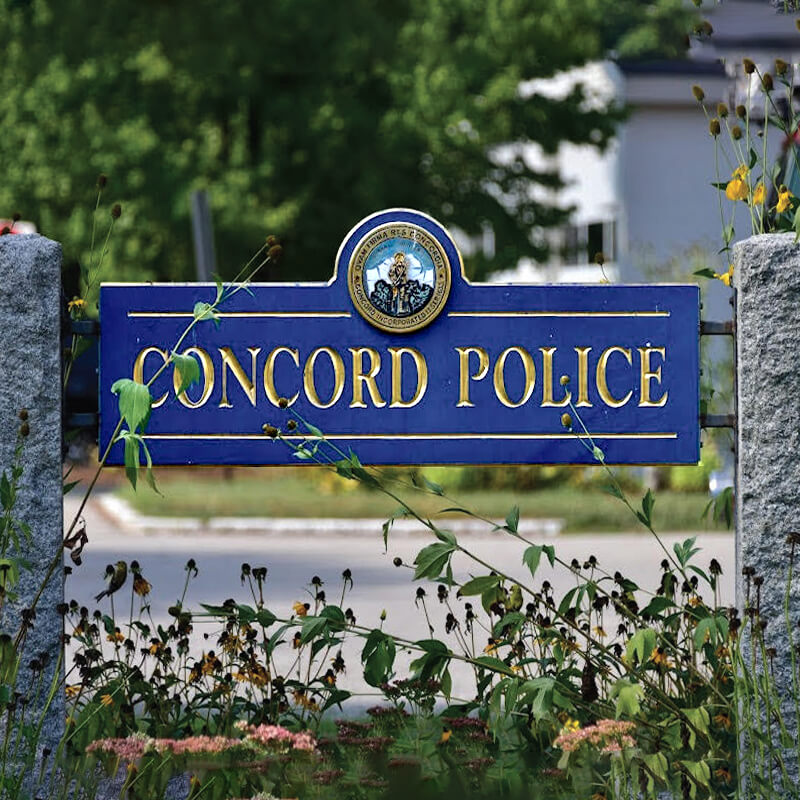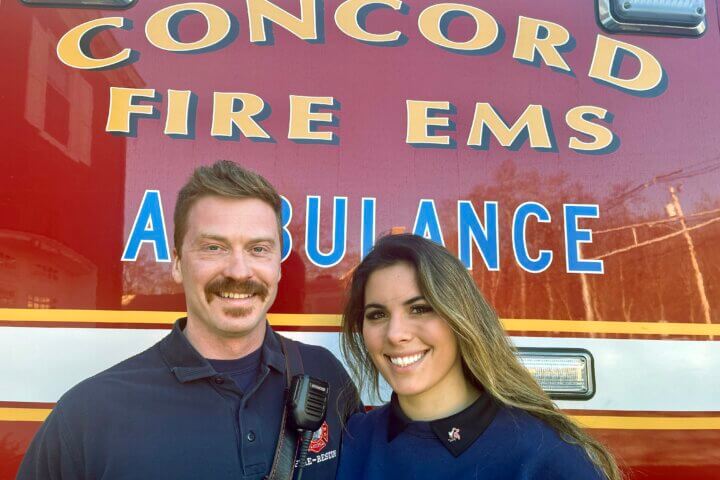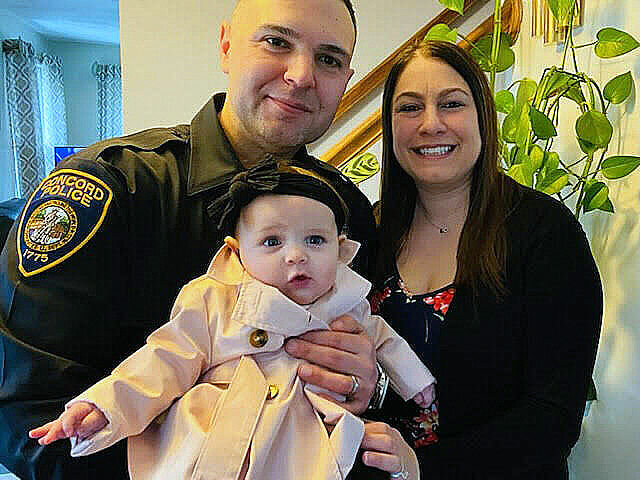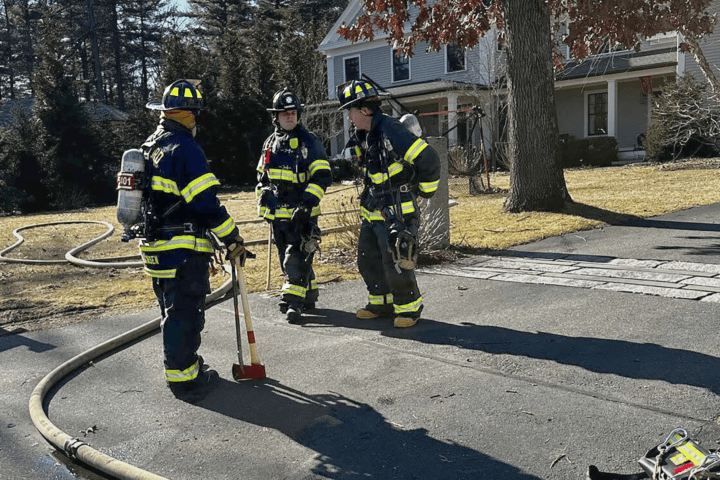“If you’re passionate about something, any reservations you have just go away,” says Detective Cara Paladino about her decision to pursue a career in law enforcement.
She is one of six women on the Concord Police force and serves as the town’s school resource officer.
There are risks associated with law enforcement work as well as challenges women face in a profession dominated by men. But the former—the potential for a situation to become dangerous—is just part of the job,” Paladino says. And the latter is not an issue for these officers.
“The idea of police work being a man’s job is archaic,” she notes. “All of the men on the force respect and trust us.”
Interim Police Chief Tom Mulcahy underscores that statement.
“These officers are highly skilled, dedicated members of our department and are all committed to our community,” he says. “Not only are they professionals with a vast skill set, but these women are also great people, and we are happy they work with us every day.”
Nationally, about 13 percent of sworn officers are women. In Concord, the percentage is a bit higher: six of the 36 officers are female.
“I don’t think in terms of male vs. female,” says Patrol Officer Brianna Rudolph, who has six brothers. Paladino, too, grew up “playing sports with the guys and having strong male figures in my life.”
When Paladino was a teenager her car was broken into and she was intrigued by the process of investigating the crime. She studied criminal justice in college, worked at law firms, and, like the other officers, graduated from one of the state’s police academies. Rudolph had an internship with the Winthrop police department while a senior in high school. Patrol Officer Juliana Diramio had “always wanted to be a police officer,” she says. Diramio attended Merrimack College Police Academy and earned a master’s in criminal justice.
Officer Sylvia Toumayan has been with the Concord force for 27 years.
“In the past, you really had to prove yourself in ways that the men didn’t,” she says. “Once you did, and they knew you could handle it, they would rather have you on a call than maybe another male officer in whom they didn’t have confidence.”
Toumayan, who was a K9 handler for 15 years, received specialized tactical training as a member of the Regional Response Team of the Northeastern Massachusetts Law Enforcement Council (NEMLEC). She was the only woman on the council for years.
When four of the six officers ended up being called in to work an overnight shift last July, the first time women had fully staffed the shift, it made news in the area. The women who worked that night, however, downplay the attention. “It wasn’t a big deal to us,” Paladino says, who worked the shift with Sergeant Tia Manchuso, Officer Leah Olansky, and Rudolph. “We just showed up to do our job.”
Toumayan says people “often underestimate how strong we are and our overall ability to do the job…Someone’s suitability is not about size and strength, but about their character and aptitude.” A police officer’s job, she adds, “is unpredictable. A situation can change to the extreme in seconds and you have to be able to adapt and react on the fly. Not everyone can do that, and it has to do with the individual as opposed to the gender.”
Despite being highly qualified and capable, the officers are not always treated with civility. “Unfortunately, there are members of the community who are disrespectful to a female officer in ways that they are not to our male counterparts,” Toumayan says.
Sometimes when the officers stop a male driver for a violation, “We get called ‘sweetie’ or ‘honey’,” says Paladino. Toumayan has been in situations where a man will only speak to the male officer on the scene. “We get called every name in the book and demeaned in front of our coworkers, but you just have to let it roll off your back,” she says.
Male officers “automatically get respect,” adds Rudolph. “We have to work for it.” But most people the officers encounter have been respectful, they say, adding that they appreciate the support they get from the Concord community.
One issue every officer faces regardless of gender is that, “we’re constantly battling the social media perception of the police,” says Paladino. “Some people may have had a negative interaction with an officer in the past” and expect all law enforcement professionals to behave that way. “There are bad apples in every profession,” she says, “but we’re in the limelight.”
Concord may appear to be “a sleepy little town,” Rudolph says, but “we deal with a lot here and are busier than people think.” The numbers of calls related to mental health, substance struggles, fraud, and cyber issues have increased dramatically.
Some of their days are difficult ones, the women concede. But others, when the officers sense they have made a difference, are rewarding. That is when they are reminded, as Rudolph says, that “empathy, communication, and compassion go a long way.”





